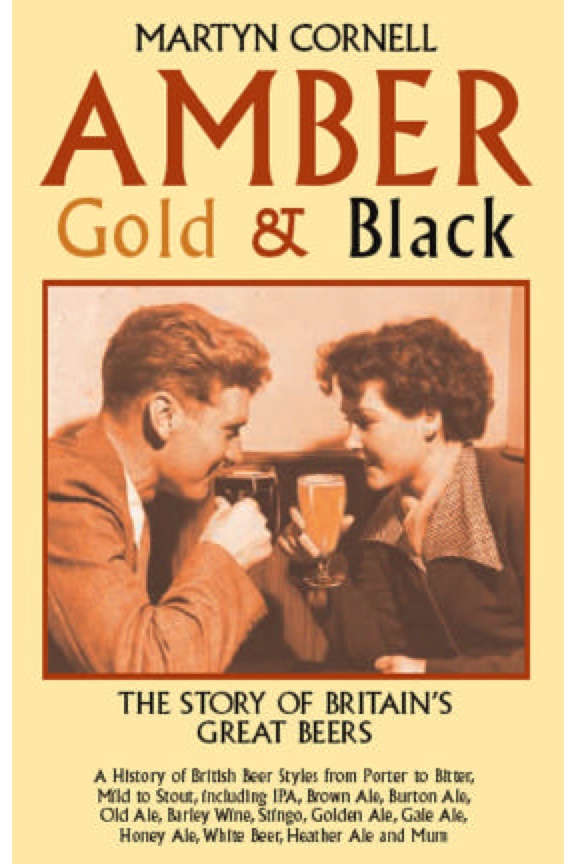
E-book, £5.00, 233 pp.
The juxtaposition is ironic: a book on the millennia-old story of British beer styles, illustrated with vintage art and labels, published in the newest format, the e-book. But British beer writer Martyn Cornell chose the new-fangled approach to get his latest book, Amber, Gold and Black: The Story of Britain’s Great Beers, into the market—and for the price of a half-an-hour of iTune downloads. Beer enthusiasts would be silly to miss this opportunity.
Cornell demonstrated in his last book, Beer: The Story of the Pint, his ability to mix highly readable narratives with a scrupulous eye for historical accuracy. That effort won him the Beer Writer of the Year Award from the British Guild of Beer Writers.
In Amber, Gold and Black, he displays a similar zeal for telling a good tale, as he describes in 16 chapters (15 ale; one lager) the intertwining strands of social history, politics, trade, class and technology that have shaped British beer styles. There is enough technical detail on the developmental stages of each style—original gravity, malt bill and brewing regimen, where documented—to please the most ardent antiquarian brewer, but the text never becomes overly geeky.
Cornell is compelled to debunk often-repeated misconceptions. He challenges the accepted history that credits the East London brewer, Ralph Harwood, with the creation of porter, as a single beer that combined the qualities that customers were used to finding in a cocktail of three different brews. The term “entire butt,” one name for porter, seems to refer not to mixing the traits of three into one, but instead to the practice of mixing several mashes from the same malt (“entire”) and aging the beer in large casks (“butt beer”).
There are surprises here, too. England had a tradition of wheat beers, connecting its brewing traditions with those of Germany and, presumably, Belgium. But at the end of the 17th century, in an effort to maximize a tax levied on malt, the government enacted what sounds like an English take on the Reinheitsgebot, prohibiting the use of any grain but barley in brewing. A rare survivor of the ban was a highly-taxed wheat beer called “mum,” which was favored by Samuel Johnson, amongst others.
Readers interested in delving further can obtain the ebook by going to www.thecornerpub.co.uk and paying £5 (a bargain at under $8.00, despite the weak dollar). If enough copies of the e-book get sold, then it’s likely what Cornell calls a “dead tree version” (a printed edition) will be produced. Readers who have bought the e-book off the website will get a discount on the printed version.
Despite the volumes written in recent years about British beer, this is, remarkably, the first devoted entirely to the evolution of styles. Buy it, download it and print it if you like—you’ll want to consult it often.









